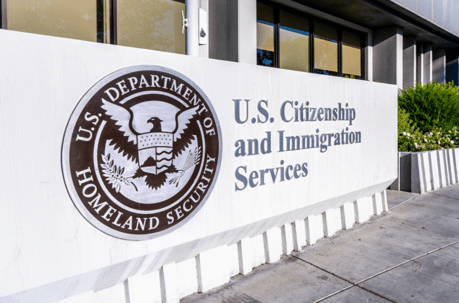In short, yes. One can exercise their rights and legally sue USCIS. While this action is possible, it is rare. The process is very lengthy and complicated, therefore hiring a knowledgeable immigration attorney is important.
When an individual with a H-1B visa is denied, their employer can either re-files the petition or just file a Motion to reopen or a Motion to reconsider also known as “MTR”. This can be effective at times; however, sometimes it can result in further denials and lost time or money. Also, if a cap case is denied then often refiling the petition is no longer an option.
By filing a Federal lawsuit, you are forcing USCIS to justify their decision, which it is highly unlikely they will be able to do. In most cases where a Federal lawsuit has been filed, USCIS has chosen to avoid litigation and has issued an approval. This is particularly true on delayed cases and partial approvals.
When one sues USCIS, one enters into what is called a “Mandamus Action” is a lawsuit used to compel an officer or an employee of the United States government. This is a non-discretionary action, it is purely administrative, which essentially means one can only sue if the officer has not done what they have a legal duty to do.
Once this Mandamus action is filed, the USCIS will not retaliate, because suing the USCIS does not sue for an approval. Suing the USCIS is essentially telling them
- You believe that they did not interpret the law correctly
- You believe that they are applying the law arbitrarily
- That you need the court’s intervention because USCIS is not doing their job.
Be sure to speak with an immigration attorney who will be able to guide you through the steps and navigating your eligibility when it comes to taking on such a large project.
When Can I Sue USCIS?
- If your case is unreasonably delayed, or if your case is taking longer than the normal proceeding time. Once this happens you have a valid case to file a Federal lawsuit to force USCIS to make a decision.
- If you have received a partial approval or a partial denial. USCIS should either approve the case for a full 3 years or not approve the case at all. The statute or regulations do not allow them to issue truncated approvals. The APA requires USCIS to provide a written explanation for a denial and this includes partial denials. What USCIS should do to comply with the APA, is issue a written decision explaining why they have denied the remaining time.
- If your case was wrongly denied, despite you having provided an expert opinion which stated otherwise. This could include a denial where USCIS claims that the position is not a specialty occupation. Please note, such denials will need to be reviewed on a case-by-case basis with an experienced Immigration and Litigation Attorney.
What is the Process?
- Step one: First you must file a complaint, then the courts will review the case for eligibility. Courts will issue an order, which will generally be completed in 120-150 days. This entails you preparing a formal legal action for the U.S. District Court identifying the following issues:
- Jurisdiction
- Factual Basis
- Relief Sought
- Step Two: After the case has been filed with the US District Court, the government is “served” with formal notice of the legal action and evidence that notice has been served on all divisions of the government must be filed with the Court.
- Step Three: The government, Dept. of Homeland Security & USCIS, must file a response within 60 days of service identifying if they have any justification for not having completed the processing of the application.
- Step Four: During the preceding period of time we negotiate, if possible, with USCIS and U.S. Attorney’s Office to request appropriate action on the pending application.
- Step Five: If an agreement cannot be reached, then a motion for judgment is filed with the Court. Then, there is a hearing or trial scheduled by the court. If the court does not issue a decision on the application, they will return it to the USCIS with specific orders on how to handle the immigration petition.
If I want to sue the USCIS, what else should I consider?
First, consider the state in which you are filing, this could affect your ability to bring a legal action. Some states have had rulings that establish bad precedent on immigration matters, while there are some jurisdictions that have had more positive decisions on immigration matters.
Second, note that it will take anywhere from approximately 180 days before you receive a decision on your pending application?
Thirdly, the USCIS will not deny your pending application just because you are suing them. Applications will be decided on their merits and the fact that you sued should not affect the decision-making process.
Fourth, it is important to note there is a $350.00 fee forU.S. District Court Complaint, plus $50.00 for Service of Process. You should consult with an attorney that specializes in Federal Immigration litigation to determine if a legal action would be appropriate in your situation.
Fifthly, mandamus actions against USCIS under APA for unreasonable delays in naturalization, and adjudication of adjustment of status. If a case is delayed/denied an employer can go straight to Federal Court and bring under the Administrative Procedure Act (APA). There is no exhaustion requirement with the process, which means that the Federal Court does not require an employer to exhaust administrative remedies such as filing an “MTR”.
Lastly, when filing a lawsuit against USCIS, hiring a knowledgeable attorney will help answer any questions you might have. Contact the qualified lawyers at Yekrangi & Associates , they can guide you through the entire process of taking USCIS to court.

